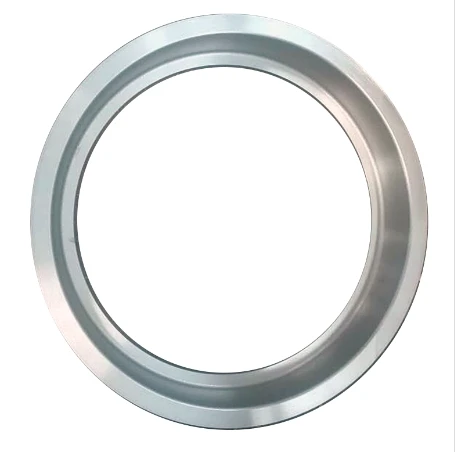- Afrikaans
- Albanian
- Amharic
- Arabic
- Armenian
- Azerbaijani
- Basque
- Belarusian
- Bengali
- Bosnian
- Bulgarian
- Catalan
- Cebuano
- China
- China (Taiwan)
- Corsican
- Croatian
- Czech
- Danish
- Dutch
- English
- Esperanto
- Estonian
- Finnish
- French
- Frisian
- Galician
- Georgian
- German
- Greek
- Gujarati
- Haitian Creole
- hausa
- hawaiian
- Hebrew
- Hindi
- Miao
- Hungarian
- Icelandic
- igbo
- Indonesian
- irish
- Italian
- Japanese
- Javanese
- Kannada
- kazakh
- Khmer
- Rwandese
- Korean
- Kurdish
- Kyrgyz
- Lao
- Latin
- Latvian
- Lithuanian
- Luxembourgish
- Macedonian
- Malgashi
- Malay
- Malayalam
- Maltese
- Maori
- Marathi
- Mongolian
- Myanmar
- Nepali
- Norwegian
- Norwegian
- Occitan
- Pashto
- Persian
- Polish
- Portuguese
- Punjabi
- Romanian
- Russian
- Samoan
- Scottish Gaelic
- Serbian
- Sesotho
- Shona
- Sindhi
- Sinhala
- Slovak
- Slovenian
- Somali
- Spanish
- Sundanese
- Swahili
- Swedish
- Tagalog
- Tajik
- Tamil
- Tatar
- Telugu
- Thai
- Turkish
- Turkmen
- Ukrainian
- Urdu
- Uighur
- Uzbek
- Vietnamese
- Welsh
- Bantu
- Yiddish
- Yoruba
- Zulu
Sep . 22, 2024 07:00 Back to list
direct fired boiler
Understanding Direct Fired Boilers
Direct fired boilers (DFB) are a crucial component in various industrial processes, providing an efficient means of generating steam and heat. Unlike other types of boilers that utilize heat exchangers or indirect methods of heat transfer, direct fired boilers use a combustion process to produce steam directly from fuel. This method offers several advantages, making DFBs a popular choice in various applications, including power generation, chemical processing, and food manufacturing.
How Direct Fired Boilers Work
Direct fired boilers operate by combusting fuels such as natural gas, oil, or biomass directly in the furnace. The process begins with fuel being mixed with air and ignited, creating a high-temperature flame. The heat generated from this combustion process is then transferred to water or another heat transfer fluid to produce steam. This steam can be used to drive turbines for electricity generation, provide heating for industrial processes, or even help in the production of products, like steam for cooking in food processing.
Advantages of Direct Fired Boilers
One of the primary benefits of direct fired boilers is their efficiency. Because the heat is produced directly from the combustion process, there is minimal heat loss, resulting in higher thermal efficiency. Additionally, direct fired boilers can quickly respond to changes in demand, making them ideal for industries where steam loads fluctuate significantly.
direct fired boiler

Another advantage is their relatively simple design. DFBs consist of fewer components compared to more complex boiler systems, which translates to lower maintenance costs and fewer potential points of failure. This simplicity can lead to improved reliability and a longer lifespan for the equipment.
Applications of Direct Fired Boilers
Direct fired boilers are utilized in a wide range of applications. In the manufacturing sector, they are commonly found in processes that require steam, such as textile production and food processing. In the energy sector, DFBs are vital for power plants where steam drives turbines. Additionally, they play a significant role in chemical production, providing heat for various reactions.
Considerations and Challenges
While direct fired boilers offer numerous benefits, they are not without challenges. Operating at high temperatures and pressure requires rigorous safety measures to prevent accidents. Moreover, the combustion process produces emissions, necessitating the implementation of emission controls and compliance with environmental regulations.
In conclusion, direct fired boilers are an efficient and reliable solution for generating steam and heat across multiple industries. Their straightforward operation and high efficiency make them an attractive option for businesses looking to optimize their thermal processes. As industries continue to evolve, advancements in technology may further enhance the efficiency and environmental performance of direct fired boilers, ensuring their relevance in a sustainable future.
-
Premium Cast Iron Water Main Pipe: Durable, Corrosion-Resistant
NewsAug.03,2025
-
Durable Cast Iron Water Mains | AI-Optimized Systems
NewsAug.02,2025
-
High-Efficiency Propane Boiler for Baseboard Heat | Save Energy
NewsAug.01,2025
-
Premium Source Suppliers for Various Gray Iron Castings
NewsJul.31,2025
-
Durable Cast Iron Water Main Pipes | Long-Lasting
NewsJul.31,2025
-
High-Quality Cast Iron Water Main Pipe for Durable Infrastructure
NewsJul.30,2025


